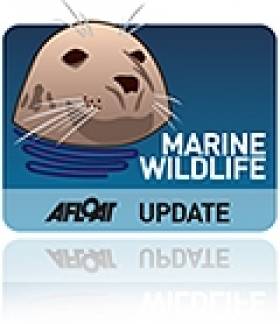Displaying items by tag: Irish Basking Shark Project
Dancing Dolphins Surprise Researchers Off Donegal
#MARINE WILDLIFE - Marine researchers off the coast of Donegal were recently treated to a rare dolphin dance by a 50-strong pod, as IrishCentral reports.
The video above captures the same pod witnessed by researchers with the Irish Basking Shark Project, who were in the area off Inishowen to observe basking sharks in the coastal waters when they were surprised by the gregarious dolphin congregation.
A spokesperson for the project confirmed to IrishCentral that such large groupings of dolphins are unusual for the area, which has welcomed more than its fair share of large marine wildlife over recent months.
As previously reported on Afloat.ie, one of the first confirmed sightings of killer whales on the Irish coastline was recorded earlier this summer when a family of orcas from the Scottish Hebrides visited the same waters at the mouth of Lough Swilly.
Meanwhile, WorldIrish reports on the heartwarming tale of a Dutch couple who have bonded with Dingle's most famous non-human resident, Fungie the dolphin.
Jeannine Masset and Rudi Schamhart, who now live in Annascaul, have visited the friendly cetacean for 21 years, and their connection has inspired a fanpage on Facebook that has received responses from Fungie fans around the world.
"Fungie has enriched our lives and we want to give something back to him by offering our friendship and companionship to him," said Jeannine, "and he lets us know over and over again that he really appreciates it."





























































